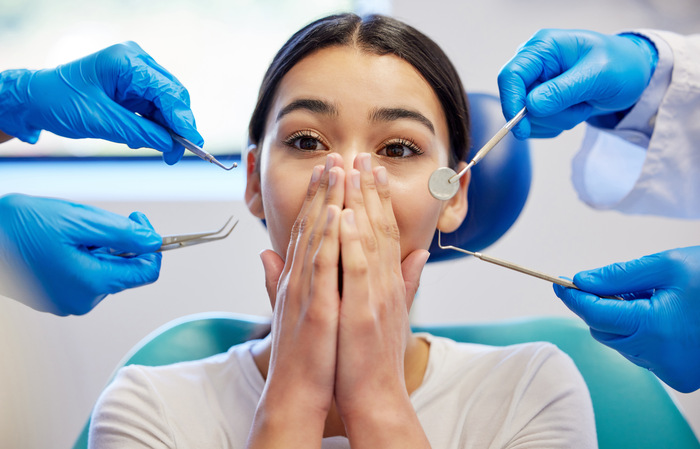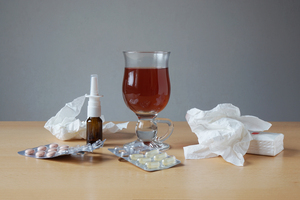Dental anxiety, a common phenomenon affecting individuals of all ages, is characterized by an intense fear or stress associated with visiting the dentist's office, according to the American Dental Association. This article delves into the various causes, symptoms, and treatment options available for managing dental anxiety. By understanding the underlying factors that contribute to this condition, recognizing its manifestations, and exploring effective coping strategies, we aim to provide comprehensive insights that can help individuals overcome their fears and maintain optimal oral health. Whether it's the anticipation of pain, past traumatic experiences, or the sounds and smells of the dental clinic, dental anxiety can significantly impact one's willingness to seek necessary dental care.
What is Dental Anxiety
Dental anxiety is a prevalent issue that affects a significant portion of the population, causing considerable distress and often leading to the avoidance of necessary dental care, according to Dental Fear Central. They explain that dental anxiety can be described as a feeling of unease, apprehension, or fear specifically related to visiting the dentist's office. This anxiety may range from mild discomfort to severe phobia, known as dentophobia, which can result in complete avoidance of dental treatment.
The roots of dental anxiety can be multifaceted, encompassing psychological, emotional, and sensory factors, according to the American Dental Association. They explain that psychological factors may include a fear of losing control or feeling helpless while in the dental chair. Emotional factors might involve previous traumatic dental experiences or generalized anxiety disorders. Sensory triggers, such as the sound of a dental drill or the smell of dental materials, can also play a significant role. Understanding these diverse elements is crucial for both patients and dental professionals in developing effective strategies to manage and alleviate dental anxiety, thereby improving the overall dental care experience.
Symptoms of Dental Anxiety
Recognizing the symptoms of dental anxiety is a critical step in addressing and managing this condition. By identifying these symptoms, the American Dental Association notes that individuals and dental professionals can better understand the extent of the anxiety and take appropriate measures to ensure a more comfortable and stress-free dental experience.
Symptoms of dental anxiety include:
Dental Anxiety Causes
Understanding the root causes of dental anxiety is essential for developing effective strategies to alleviate it, according to Dental Fear Central. They explain that some causes of dental anxiety include:
Difference Between Dental Anxiety Dental Phobia
While dental anxiety and dental phobia may seem similar, they represent different levels of fear and stress related to dental visits, according to Dental Fear Central. They explain that dental anxiety is generally characterized by feelings of unease, nervousness, or stress when thinking about or undergoing dental procedures. It is a common reaction that can usually be managed with coping strategies and support from dental professionals. Individuals with dental anxiety may experience discomfort but are still able to attend dental appointments and receive necessary care.
In contrast, dental phobia is a more severe and intense fear that can lead to complete avoidance of dental visits, according to Dental Fear Central. This condition goes beyond mere anxiety, manifesting as an overwhelming and irrational fear that can significantly impact an individual's oral health. People with dental phobia often delay or entirely skip dental appointments, which can result in serious dental issues over time. The heightened fear associated with dental phobia requires more specialized interventions, such as behavioral therapy or sedation dentistry, to help individuals overcome their phobia and receive the care they need.
Symptoms of dental phobia, according to Dental Fear Central, include:
-
Nervousness as the appointment gets closer
-
Trouble sleeping or eating before your dental visit
-
Feeling physically sick before your dental exam or treatment
-
Feeling very emotional or crying before your dental appointment
How to Deal with Dental Anxiety
Effectively managing dental anxiety is crucial for ensuring that individuals receive the dental care they need without undue stress or fear, according to Dental Fear Central. They explain that using practical strategies and techniques to help alleviate dental anxiety, enabling a more comfortable and positive experience at the dentist's office.
Some tips from Dental Fear Central include:
By incorporating these methods, patients can take proactive steps to reduce their anxiety and improve their overall oral health, according to Dental Fear Central.
FAQs
What is dental anxiety?
Dental anxiety is a feeling of unease, apprehension, or fear specifically related to visiting the dentist's office.
What are the symptoms of dental anxiety?
Symptoms include tachycardia, sweating, panic, crying, low blood pressure, fainting, and hyperventilation.
How is dental anxiety different from dental phobia?
Dental anxiety is characterized by feelings of unease or stress, while dental phobia is a more severe and intense fear leading to complete avoidance of dental visits.
What causes dental anxiety?
Causes include fear of injections, anesthetic, loss of personal space, fear of pain, and feelings of helplessness or loss of control.
How can dental anxiety be managed?
Management strategies include deep breathing, relative analgesia, bringing a weighted blanket, communication with the dentist, medication, and meditation.
What are some strategies to alleviate dental anxiety?
Strategies can include deep breathing, using nitrous oxide, bringing a weighted blanket, talking to the dentist, trying anxiety-relieving medication, and practicing meditation.
Can medication help with dental anxiety?
Yes, anxiety-relieving medication can be an effective strategy for managing dental anxiety.
Is it helpful to talk to the dentist about my dental anxiety?
Absolutely, communicating your fears and anxieties with your dentist can help them understand your situation better and provide appropriate support or solutions.











